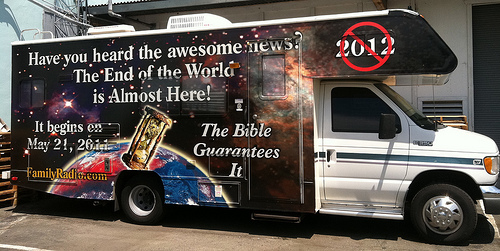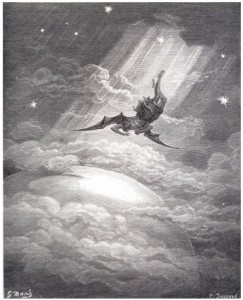It seems to me that Bible supports the notion that there was age long before God created man in which the Angelic realm interacted with the triune God for a vast period of time culminating when 1/3 fell into a rebellious state. This idea coheres nicely with many verses that imply an Angelic fascination with man and a literal reading of Genesis in which the entire universe is created in verse one: “In the beginning God created the Heavens and the earth.” This opening declaration in verse 1 stands alone; Seven Hebrew words say it all. If you understand this verse you will have no trouble with any other verse in the Bible.
רֵאשִׁית reshit “the beginning”
The first word is Beresheeth, “In Beginning,” which yields the name of the book of Genesis in Hebrew. Hebrew scholar John Sailhamer contends in his book Genesis Unbound that:
The Hebrew word reshit which Moses used has a very specific sense in scripture. In the Bible the term always refers to an extended yet indeterminate duration of time – never a specific moment. It is a block of time which precedes an extended series of time periods. It is a time before time. The term does not refer to a point in time but to a period or duration of time which falls before a series of events. (Sailhamer, 38)
The Bible simply does not address the amount of time “in the beginning” in which the universe was created. While we find some Answers in Genesis, we do not find them all, we need to consult the whole counsel of God. The multitude of events that necessarily lie somewhere “in the beginning” is a hermeneutically sound basis for adopting an Old Earth position. This video argues from the text of Genesis as well as appealing to the Angelic conflict which strongly suggests the preexistence of the universe to the “week” of Genesis 1.











